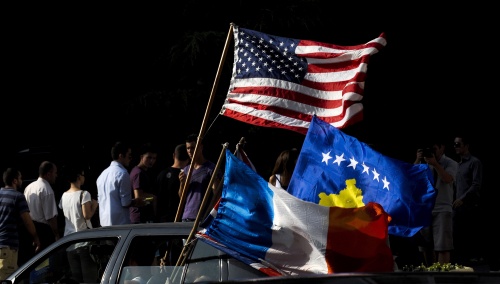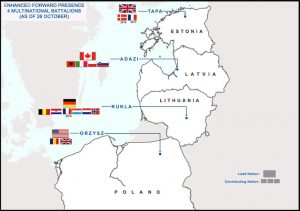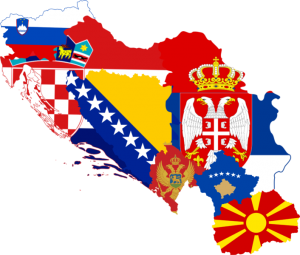
Views: 1725
The dramatic developments surrounding the independence referendum in Catalonia, as well as the plebiscite for the self-determination of Iraqi Kurds, have once again raised the issue of the lack of clear criteria in international practice for allowing the self-determination of nations and territories. This creates a breeding ground for double standards and speculative political maneuvers. And although Catalan separatism has a long and unique history, an assessment of current events shows that there are links to other regional crises including in the Balkans, where the double standards and geopolitical games have become fully apparent.
Richard Haass, president of the influential US Council on Foreign Relations, recently took an active part in discussions on these issues. In an article published on the Project Syndicate website on 29 September, four days after the referendum in Iraqi Kurdistan and two days before the referendum in Catalonia, Haass writes that in today’s world, new statehood depends largely on recognition by other states. He then goes on to try to formulate his own set of standards that he believes should be applied in such situations. There are five of these ‘Haass standards’ (read: the Council on Foreign Relations’ standards): the existence of historical foundations that indicate “a clear collective identity for the people in question”; the existence of convincing arguments proving that “the status quo is imposing a large political, physical, and economic price” on the population; a clear indication by the population that “it strongly favors a new and separate political status”; an indication that the new state will be “viable”; and, finally, that secession will not “jeopardize the viability of the rump state or the security of neighboring states”.
If you look at former Yugoslavia in terms of these rules, then it is easy to see the West’s extreme haste in recognizing the independence of a number of Yugoslav republics, as well as the Serbian province of Kosovo. Among other things, there would have been no “large political, physical, and economic price” should Kosovo have kept its status after 1999 as a territory under the United Nations Interim Administration Mission in Kosovo with broad powers.
There are serious issues in assessing the “collective identity” of Kosovo Albanians, whom Albanian experts themselves and the leaders of the Albanian nationalist movement have traditionally regarded as part of the Albanian ethnic group since the activities of the League of Prizren from 1878-1881, an ethnic group that is currently exercising its self-determination as part of the Republic of Albania. Indeed, the level of “collective identity” of Bosnian Muslims and even of Montenegrins is historically inferior to that of Catalans and even more so of Kurds.
No serious expert would say that self-proclaimed Kosovo is financially viable without the support of the West. According to the estimates of independent organizations, the international community gave Kosovo $2.3 billion in aid between 1999 and 2002. Between 2005 and 2008, the country received $1.9 billion, nearly half of its GDP, to carry out reforms. The amounts are smaller these days, nevertheless in 2016, according to data from the IMF, Kosovo’s budget received €173 million in “foreign financing”, which is comparable to its expenditure on pensions and other welfare payments.
As for Richard Haass’ final point that the secession of a country should not jeopardize “the viability of the rump state or the security of neighboring states”, the armed Kosovo Albanian separatism and its unilateral support from the West were directly responsible for the destabilization in other Albanian-populated regions of the Balkans and created an extremely dangerous precedent.
There is good reason why the Balkan states are now further away from joining the European Union than they were a few years ago. This was demonstrated, in particular, by the 2017 Western Balkans Summit held this summer in Trieste under the aegis of the Italian government involving delegations from Albania, Bosnia and Herzegovina, Macedonia, Serbia, Montenegro and Kosovo. As emphasized by Italian Prime Minister Paolo Gentiloni, the EU intends to “keep open the prospect of countries of the Western Balkans joining the European Union”, but that now was not the right time and that, generally speaking, preparations for the Balkan countries to join the EU would “require a lot of time”.
There can be little doubt that the future situation both in Catalonia and surrounding Iraqi Kurdistan will reveal evidence of geopolitical maneuvers and machinations that have little in common with the interests of international stability and the aspirations of the people. As the Spanish newspaper La Vanguardia notes in connection with the Catalan referendum, “the simple and stark reality is that the EU is not particularly worried about popular protests”. The newspaper continues: “Many countries achieved independence in the final years of the 20th century – the former Soviet republics, the Balkan states, and even South Sudan – but their quest for independence received the blessing of the hegemonic powers and organizations: the US, NATO, the EU, and the IMF. The collapse of the USSR and Yugoslavia was part of their strategic plans with regard to these enemy countries… The independence of Kosovo was recognized, but the separatist sentiments in Abkhazia, South Ossetia, Crimea and southeast Ukraine have faced strong opposition.”
“The will of the peoples of the European Union is placed on a pedestal, but only if this will is in line with oligarchical and hegemonic interests… These interests could hypothetically change in favor of Catalonia gaining independence, but this will only happen if the Spanish government suddenly starts to pursue a socially oriented policy and tries to withdraw from NATO (no European party has ever won an election with such a program), counterbalanced by a neo-liberal Catalan government oriented towards NATO membership,” concludes La Vanguardia, sarcastically. Well, there’s certainly some truth in it.
Originally published on 2017-10-10
About the author: Pyotr Iskenderov is a Senior Researcher, Institute of Slavic Studies
Source: Strategic Culture Foundation
Origins of images: Facebook, Twitter, Wikimedia, Wikipedia, Flickr, Google, Imageinjection, Public Domain & Pinterest.
Read our Disclaimer/Legal Statement!
Donate to Support Us
We would like to ask you to consider a small donation to help our team keep working. We accept no advertising and rely only on you, our readers, to keep us digging the truth on history, global politics and international relations.
[wpedon id=”4696″ align=”left”]
FOLLOW US ON OUR SOCIAL PLATFORMS











